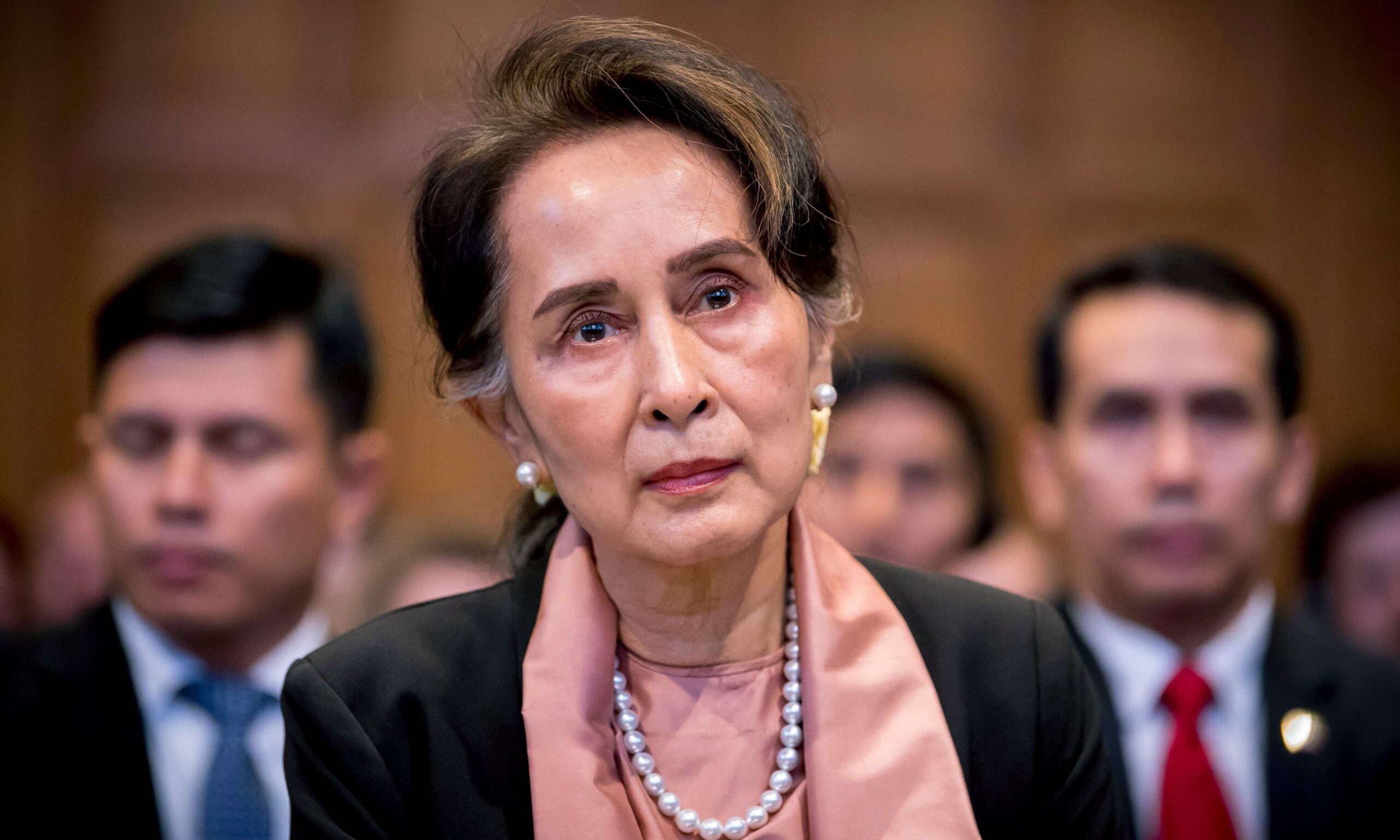YANGON: Myanmar’s ousted civilian leader Aung San Suu Kyi appears in good health despite two months of detention, her legal team said on Wednesday, as diplomatic pressure on the military junta ramped up.
Daily protests demanding the restoration of the elected government have been met with a crackdown that has left more than 520 civilians dead in the weeks since the Feb 1 coup.
The junta’s violent response has triggered international condemnation — and threats of retaliation from some of Myanmar’s myriad ethnic armed groups.
The US State Department ordered the departure of non-essential diplomatic staff and their families from Myanmar, and Japan — a top donor to the country — halted new aid payments.
The 75-year-old Suu Kyi has not been seen in public since she was deposed by the military and detained in the early hours of Feb 1.
But a member of her legal team, Min Min Soe, was summoned to a police station in the capital Naypyidaw for a video meeting with her on Wednesday.
Suu Kyi is facing a raft of criminal charges and conviction could see her barred from political office for life.
“The physical situation of DASSK (Suu Kyi) seemed good according to her appearance on video screen,” her legal team said in a statement.
Suu Kyi noted that during the meeting, police officers remained at the lawyer’s side, and guards monitored her at her end, the statement said, adding that the Nobel laureate had asked whether this was legal.
She faces a court hearing on Thursday, though another of her lawyers, Khin Maung Zaw, said it was likely to be fairly brief and deal with administrative matters.
The junta is also probing Suu Kyi over allegations she took payments of gold and $600,000 in cash, but Khin Maung Zaw said these were not likely to become formal charges at this stage.
Meanwhile, a group of ousted MPs from Suu Kyi’s National League for Democracy (NLD), who have been working underground against the junta, said on Wednesday they would form “a new civilian government” in the first week of April, without giving further details.
The Committee for Representing Pyidaungsu Hluttaw (CRPH), the Burmese word for “parliament”, also warned in a statement that “serious action” would be taken against those who are not part of the protest movement.
The US said it had decided to pull its staff out of the country to protect their safety and security.
World powers have repeatedly condemned the violent crackdown on dissent and hit top junta figures with sanctions.
Japan has halted new aid to the country, according to the country’s foreign minister, but stopped short of imposing sanctions.
“What stance is Japan taking in terms of economic assistance? There is no new aid. We are taking this clear position,” Toshimitsu Motegi told parliament on Tuesday.
But so far the pressure has not swayed the generals.
The mounting bloodshed has angered some of Myanmar’s 20 or so armed ethnic groups, who control large areas of territory mostly in border regions.
Three of them — the Ta’ang National Liberation Army (TNLA), the Myanmar Nationalities Democratic Alliance Army and the Arakan Army — on Wednesday looked set to join the protesters’ fight.
Brigadier General Tar Bhone Kyaw from the TNLA said that all three would end their ceasefire with the military.
“If they continue to kill the people, we have no reason to extend unilateral ceasefire with them,” he said.
Two other outfits — the Karen National Union (KNU) and the Kachin Independence Army (KIA) — have already stepped up attacks on military and police in recent days.
